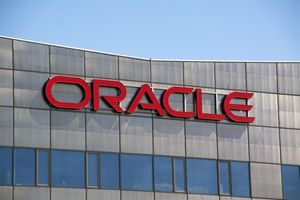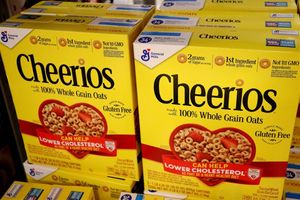
Over the last six months, Best Buy’s shares have sunk to $74.01, producing a disappointing 18.6% loss - a stark contrast to the S&P 500’s 4.7% gain. This may have investors wondering how to approach the situation.
Is there a buying opportunity in Best Buy, or does it present a risk to your portfolio? Check out our in-depth research report to see what our analysts have to say, it’s free.
Why Is Best Buy Not Exciting?
Even though the stock has become cheaper, we're swiping left on Best Buy for now. Here are three reasons why you should be careful with BBY and a stock we'd rather own.
1. Shrinking Same-Store Sales Indicate Waning Demand
Same-store sales is an industry measure of whether revenue is growing at existing stores, and it is driven by customer visits (often called traffic) and the average spending per customer (ticket).
Best Buy’s demand has been shrinking over the last two years as its same-store sales have averaged 3.7% annual declines.
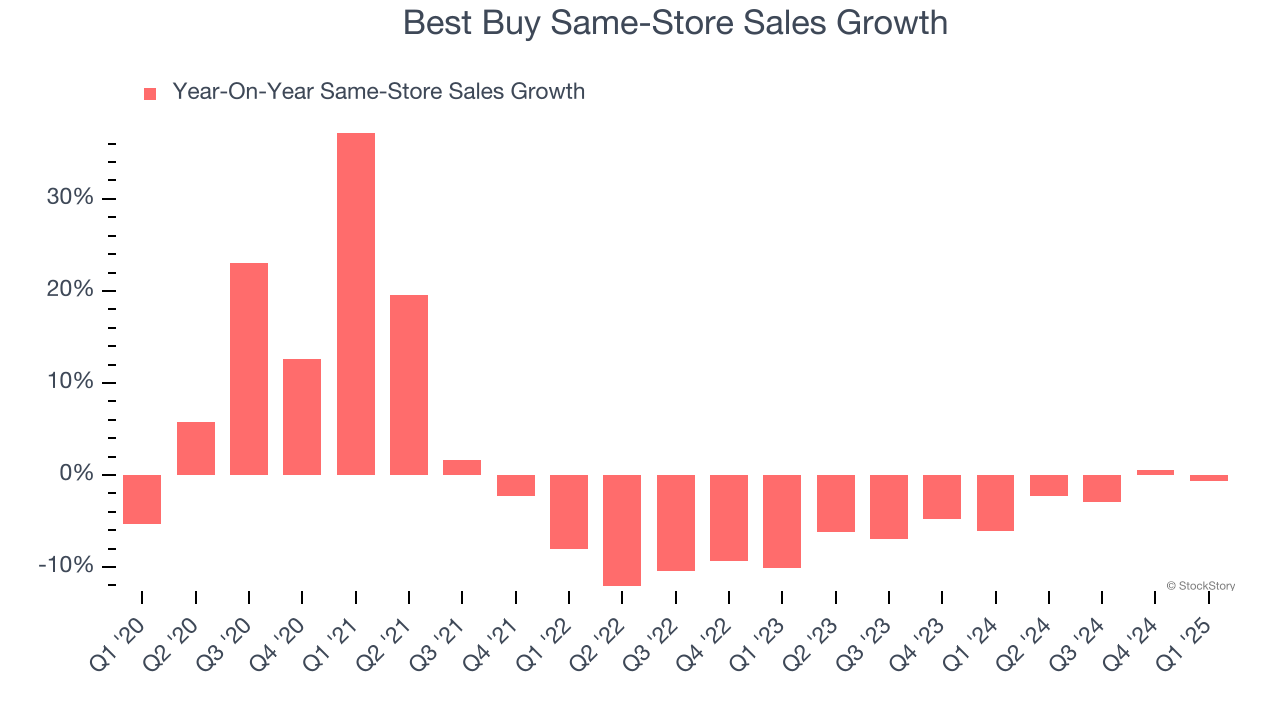
2. Low Gross Margin Reveals Weak Structural Profitability
Gross profit margins are an important measure of a retailer’s pricing power, product differentiation, and negotiating leverage.
Best Buy has bad unit economics for a retailer, signaling it operates in a competitive market and lacks pricing power because its inventory is sold in many places. As you can see below, it averaged a 22.4% gross margin over the last two years. That means Best Buy paid its suppliers a lot of money ($77.59 for every $100 in revenue) to run its business. 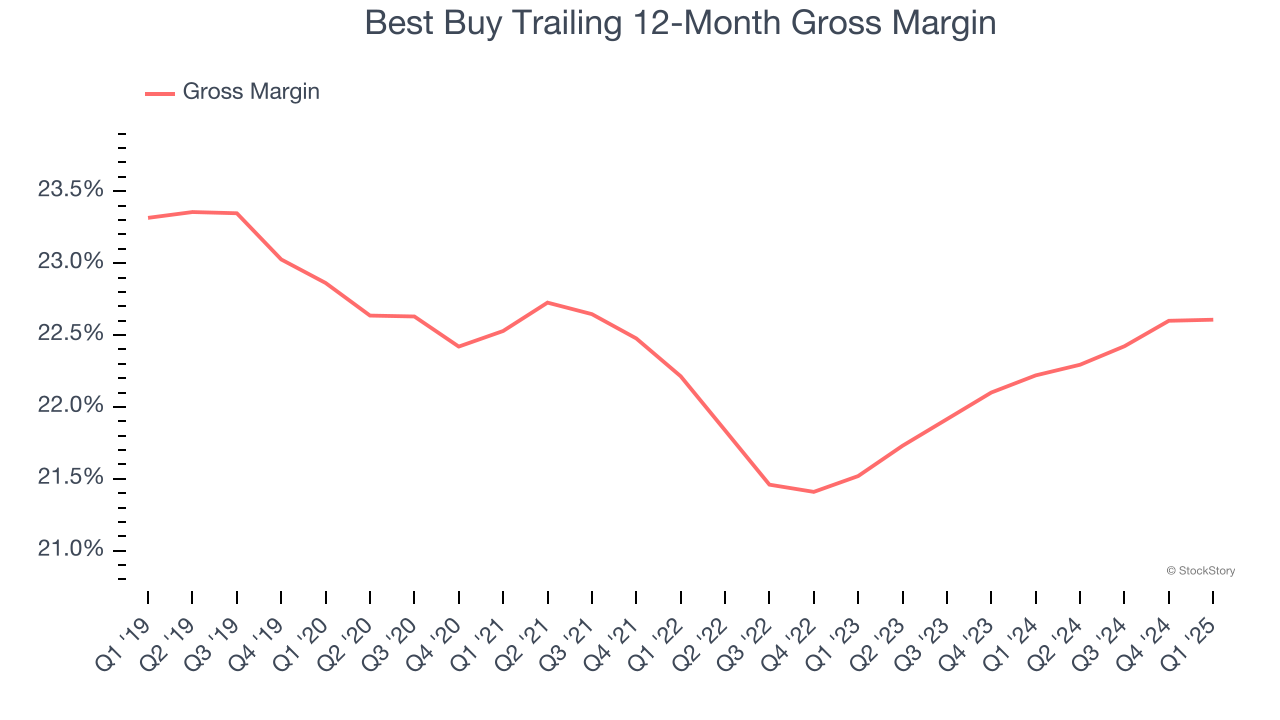
3. Weak Operating Margin Could Cause Trouble
Operating margin is a key measure of profitability. Think of it as net income - the bottom line - excluding the impact of taxes and interest on debt, which are less connected to business fundamentals.
Best Buy’s operating margin might fluctuated slightly over the last 12 months but has generally stayed the same, averaging 3.3% over the last two years. This profitability was lousy for a consumer retail business and caused by its suboptimal cost structureand low gross margin.
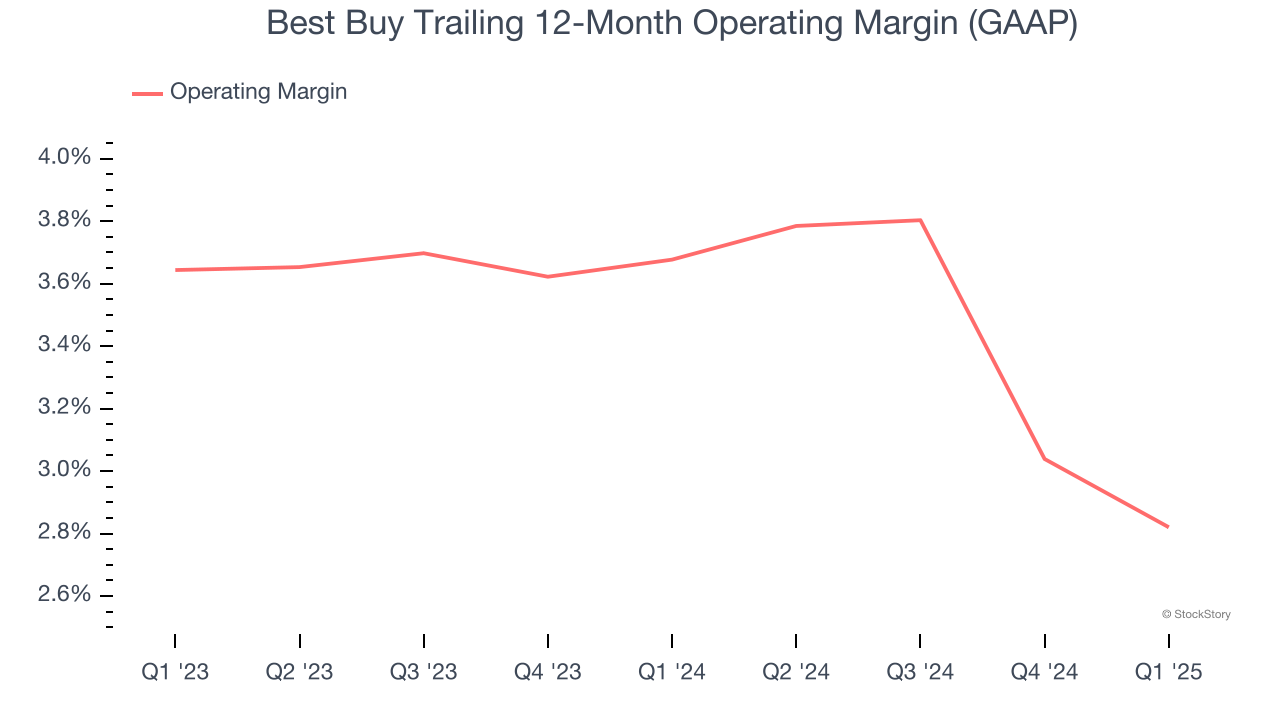
Final Judgment
Best Buy isn’t a terrible business, but it doesn’t pass our quality test. Following the recent decline, the stock trades at 11.9× forward P/E (or $74.01 per share). Beauty is in the eye of the beholder, but our analysis shows the upside isn’t great compared to the potential downside. We're fairly confident there are better investments elsewhere. Let us point you toward a top digital advertising platform riding the creator economy.
Stocks We Like More Than Best Buy
Trump’s April 2025 tariff bombshell triggered a massive market selloff, but stocks have since staged an impressive recovery, leaving those who panic sold on the sidelines.
Take advantage of the rebound by checking out our Top 5 Growth Stocks for this month. This is a curated list of our High Quality stocks that have generated a market-beating return of 183% over the last five years (as of March 31st 2025).
Stocks that made our list in 2020 include now familiar names such as Nvidia (+1,545% between March 2020 and March 2025) as well as under-the-radar businesses like the once-small-cap company Exlservice (+354% five-year return). Find your next big winner with StockStory today.
StockStory is growing and hiring equity analyst and marketing roles. Are you a 0 to 1 builder passionate about the markets and AI? See the open roles here.

